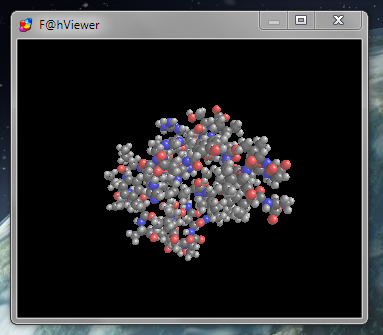|
|
Have you ever wished there was some easy way you could put your computer's spare processing power to good use? Thanks to Stanford University, you can!
Folding@Home is a program that simulates how protein molecules fold together. This is an important thing to study because, according to the Folding@Home website, "when proteins do not fold correctly (i.e. "misfold"), there can be serious consequences, including many well known diseases, such as Alzheimer's, Mad Cow (BSE), CJD, ALS, Huntington's, Parkinson's disease, and many Cancers and cancer-related syndromes." After each simulation (which takes a few hours), the program uploads the results of its simulations to the project's main computers, which then process the findings. Using a distributed computer network like this lets the researchers get better results than they could with only a few supercomputers, and, in fact, Folding@Home may be one of the fastest distributed supercomputers in the world.
The program runs in the background on your computer and doesn't prevent you from doing other things. If you want to run a graphically demanding game or other complicated program that needs a lot of processing power, you can just pause Folding@Home and it will remember where it left off. If you like competition, you can join a folding team and help them contribute more work units than other teams, or even just get a higher folding "score" than your teammates. Folding@Home is available for Windows, Mac OS, Linux, and the PlayStation 3. The PS3 version doesn't run in the background, but it does let you look at world news and listen to your music library while folding.

Stanford University makes the findings of Folding@Home available to scientists everywhere, and doesn't use them for profit. Dozens of research papers have been written using the results since the project's launch in 2000, including a number of important findings about how some organic molecules work. Naturally, this information is very useful for medical applications.
So, give it a try and see how many units you can complete. If you're feeling especially motivated, you could talk to your school's technology specialists about installing it on computers there, to make the best use of computers that often just idle every day anyway. It takes less effort than participating in "awareness days" for medical afflictions, and makes quite a bit more difference.
Author's Note: Sources: http://folding.stanford.edu/
http://fah-web.stanford.edu/cgi-bin/main.py?qtype=osstats
http://folding.extremeoverclocking.com/team_list.php?s=
|